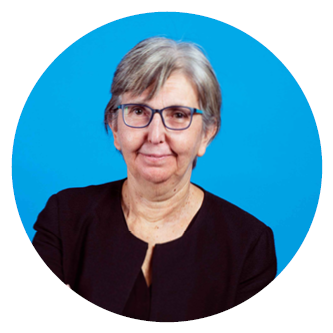Still Dying2Learn!
An article written by Professor Jennifer Tieman, Director, Research Centre for Palliative Care, Death and Dying
Are we comfortable talking about death and dying? And do we know where to find information about death, dying and palliative care? These were questions raised at the recent ARIIA conference session where participants were open enough to share their views about why we are still surprised by death and not clear about what palliative care is. While there was a general agreement that we need to talk about this part of life, the people in the session seemed to suggest that there can be a lack of opportunity and perhaps a reluctance to be the one to raise it. One of the consequences of not having open discussions was a confusion about the role of palliative care.
Talking about death and dying is not the same as conversations about advance care planning. But discussions about advance care planning may be more difficult if we are not able to talk about one of the realities of life which is end of life. This led to some sharing among the session members who talked about the We Croak (an app that helps you find happiness by contemplating your mortality, Dying 2 Know Day, (encouraging conversations about death held on 8 August each year) and death cafes (open and judgement-free gathering to enjoy coffee and cake together while talking about death).
So, it seems timely to revisit Dying2Learn. While Dying2Learn was originally an open online course, it had transformed into a set of pages in CareSearch that explore questions about death and dying. These pages unpack what shapes our views and attitudes around death, provides information on what palliative care is, highlights how digital is changing how we share things about end of life, and challenges our thinking about death and dying. Visitors to the pages can also choose to tell us what they think about life and death by answering four questions. Over 18 months, 228 views have been shared.
Eighty three percent of those who replied agreed that they felt comfortable talking about death and dying. That’s probably not surprising. If you were looking at webpages talking about death and dying maybe you are ok about death and dying. However, over eighty per cent of those who replied to the questions, felt that MOST people are do not feel comfortable talking about death and dying. So even if we see ourselves as willing to talk about it, we see most others as not willing to talk about it. Even more interesting, 96% agree that they thought talking about death and dying in society is important. And as a final perspective, only 58% of those who replied felt that if they needed to find information about death, dying, or palliative care, they would know where to look.
Given that Dying to Know Day is coming up in a couple of weeks’ time on 8 August, maybe we should use this as a chance to have a conversation with someone - at work, in your family or in your neighbourhood. If you need some inspiration on what to say, perhaps visit the Dying2Learn pages or order a pack of resources.
Authors

Professor Jennifer Tieman BSc(Hons) MBA PhD FAICH
Matthew Flinders Professor
Director, Research Centre for Palliative Care, Death and Dying (RePaDD)